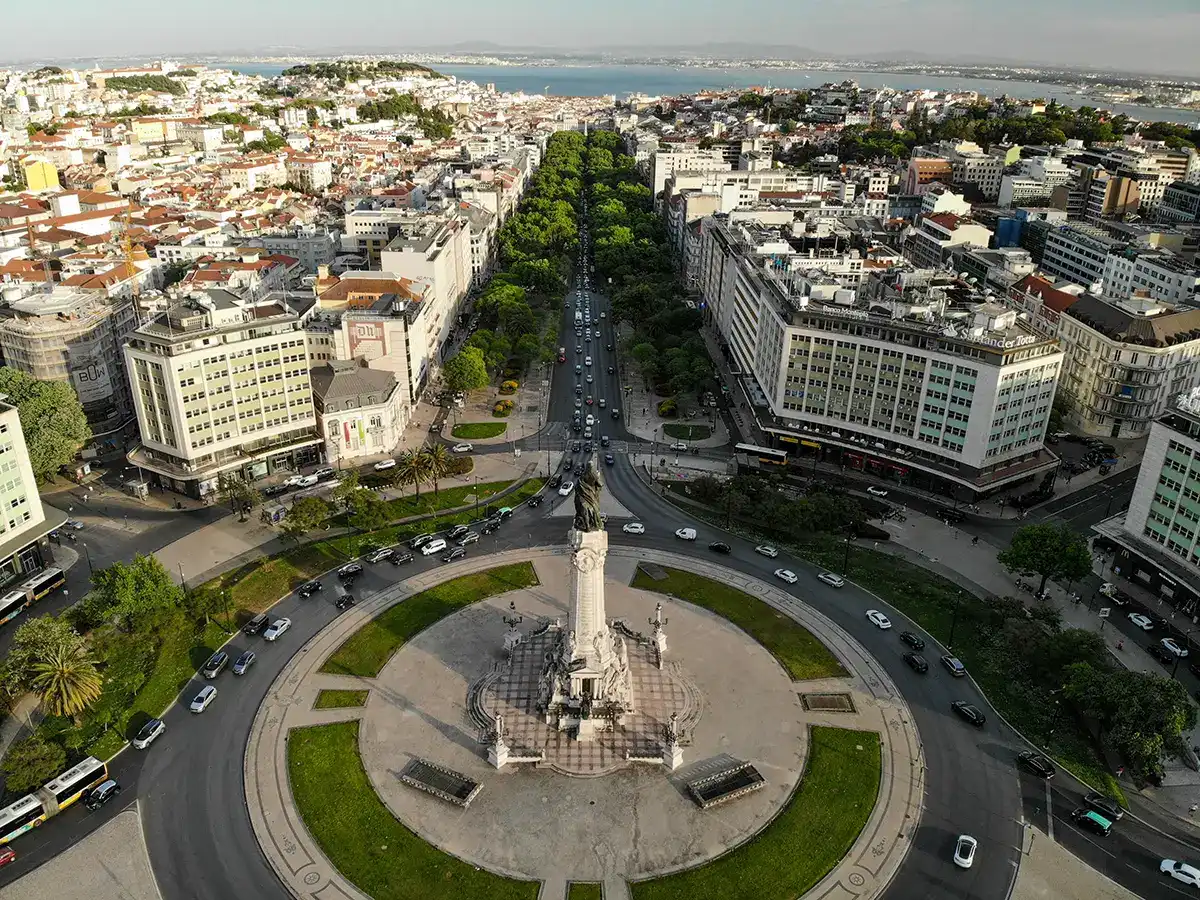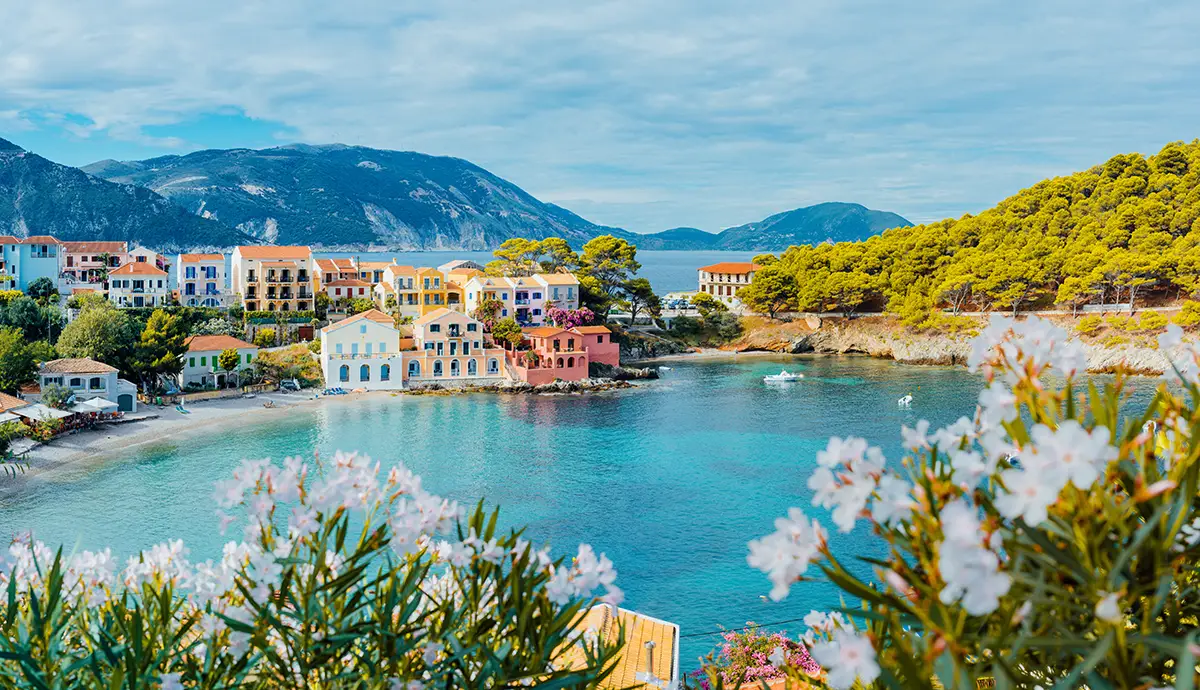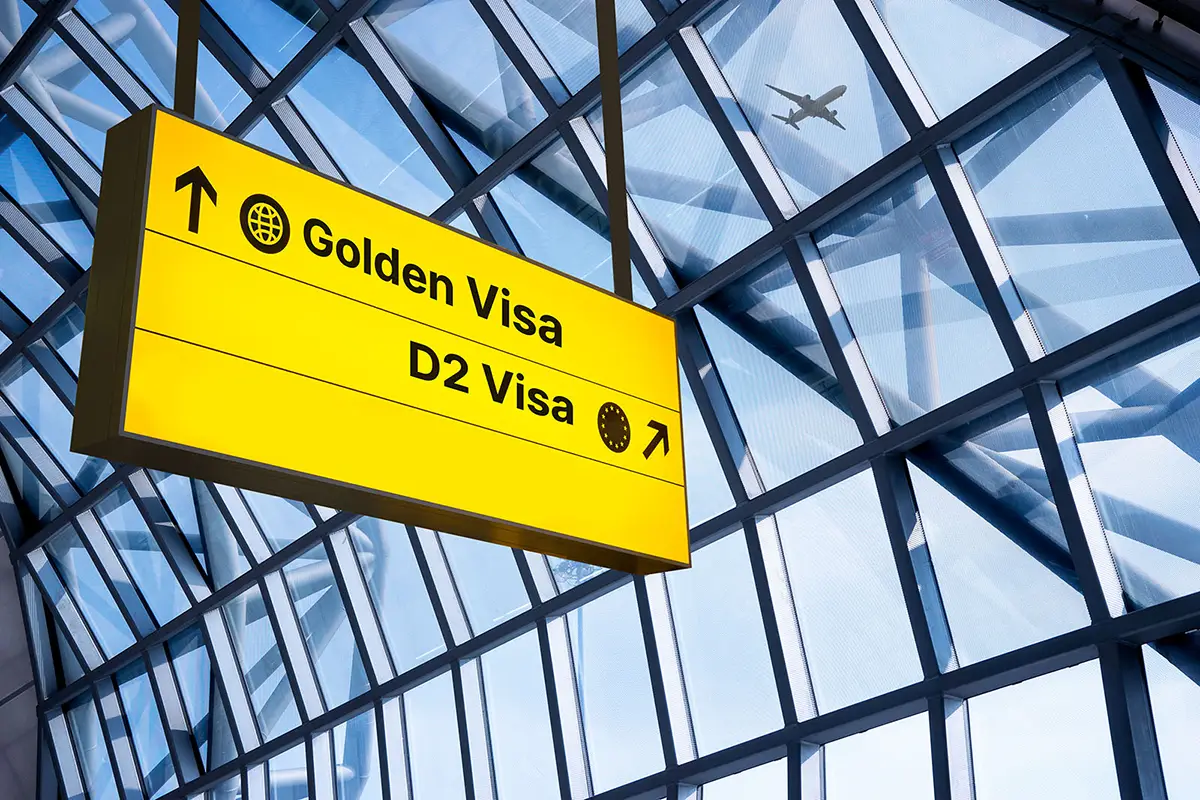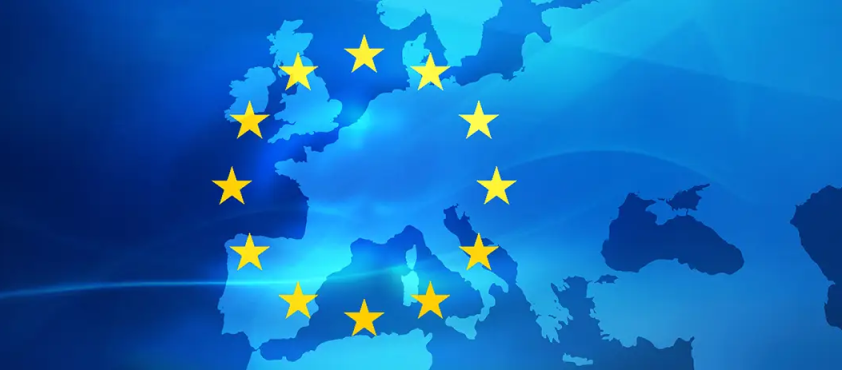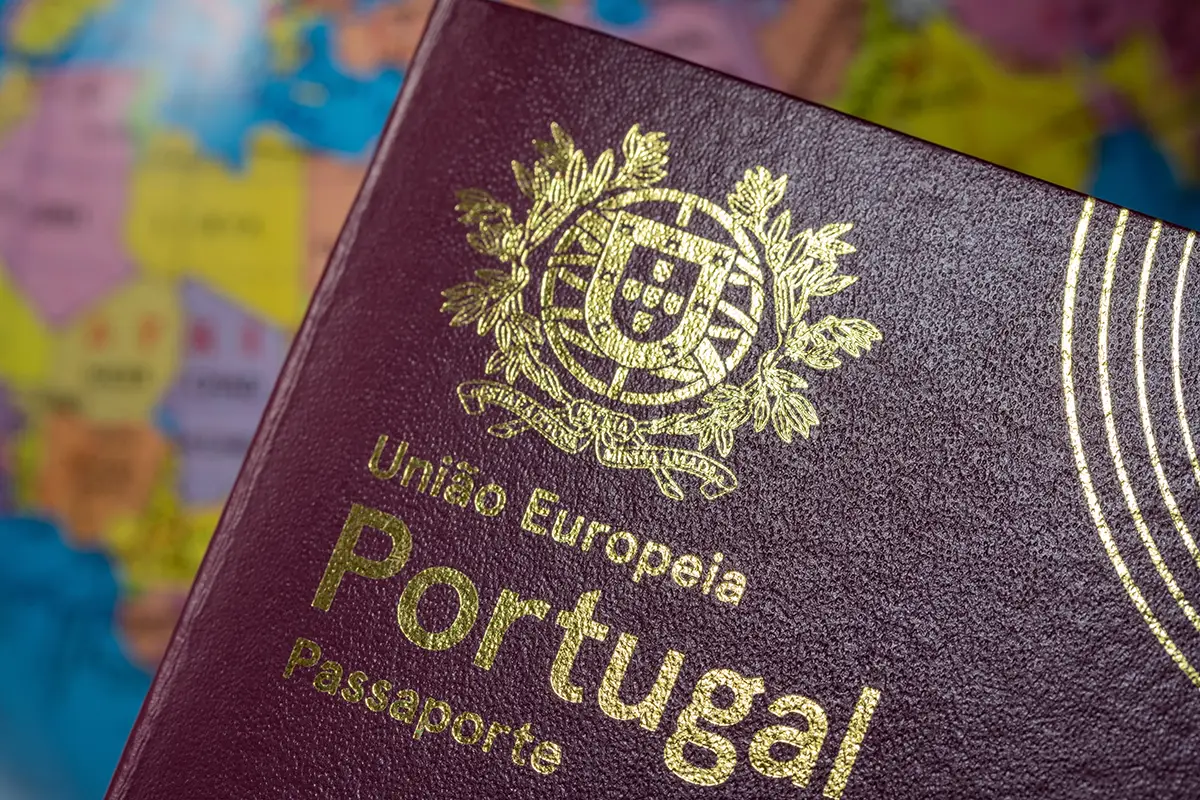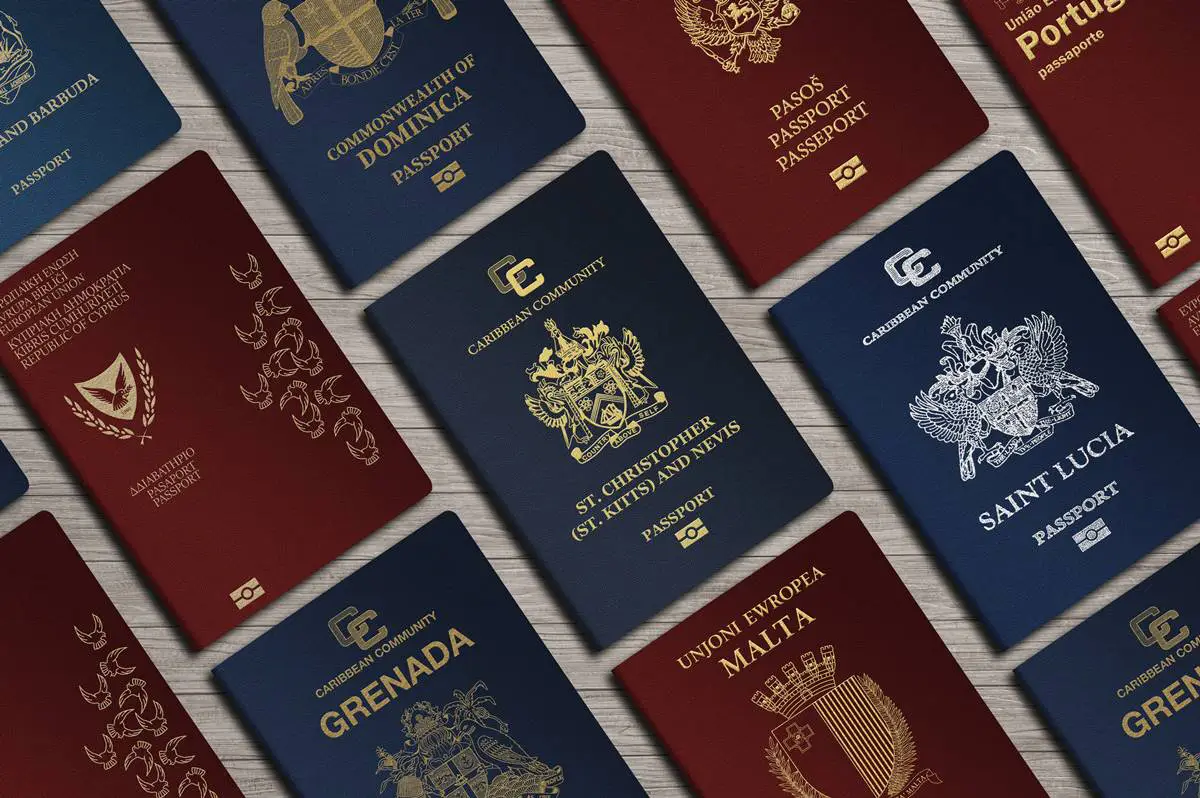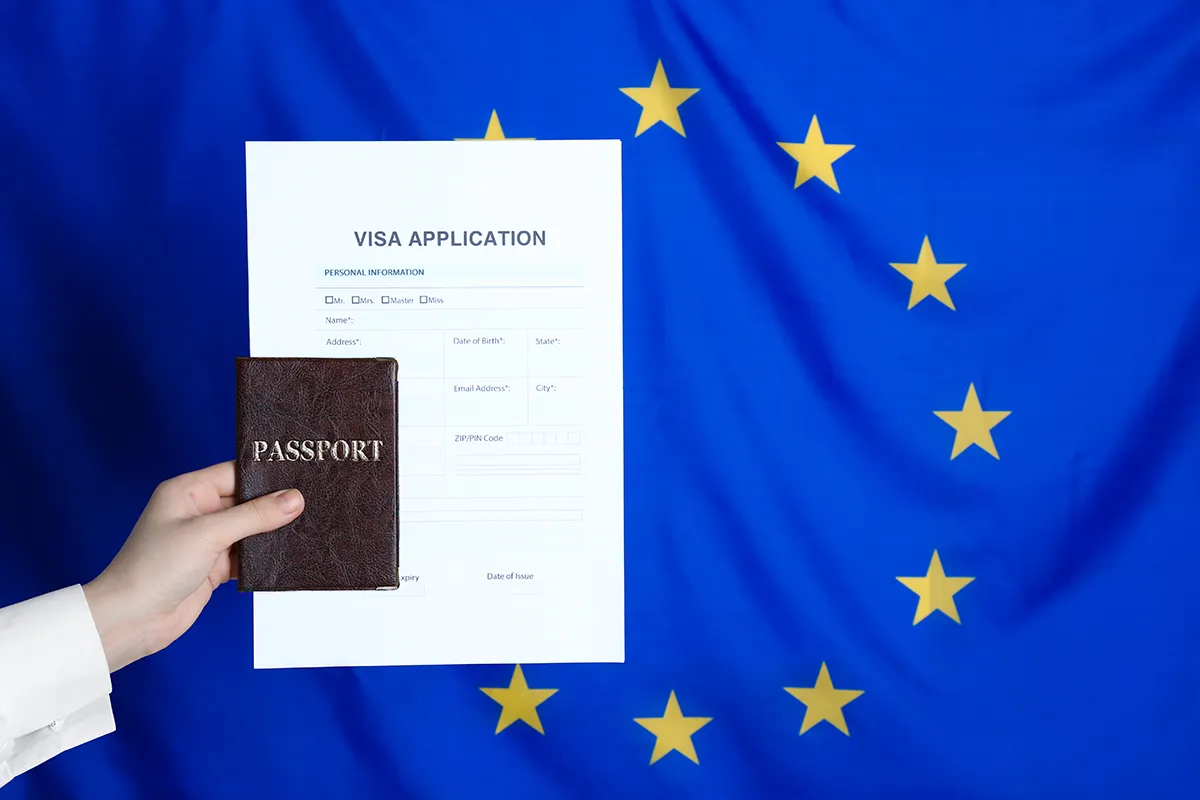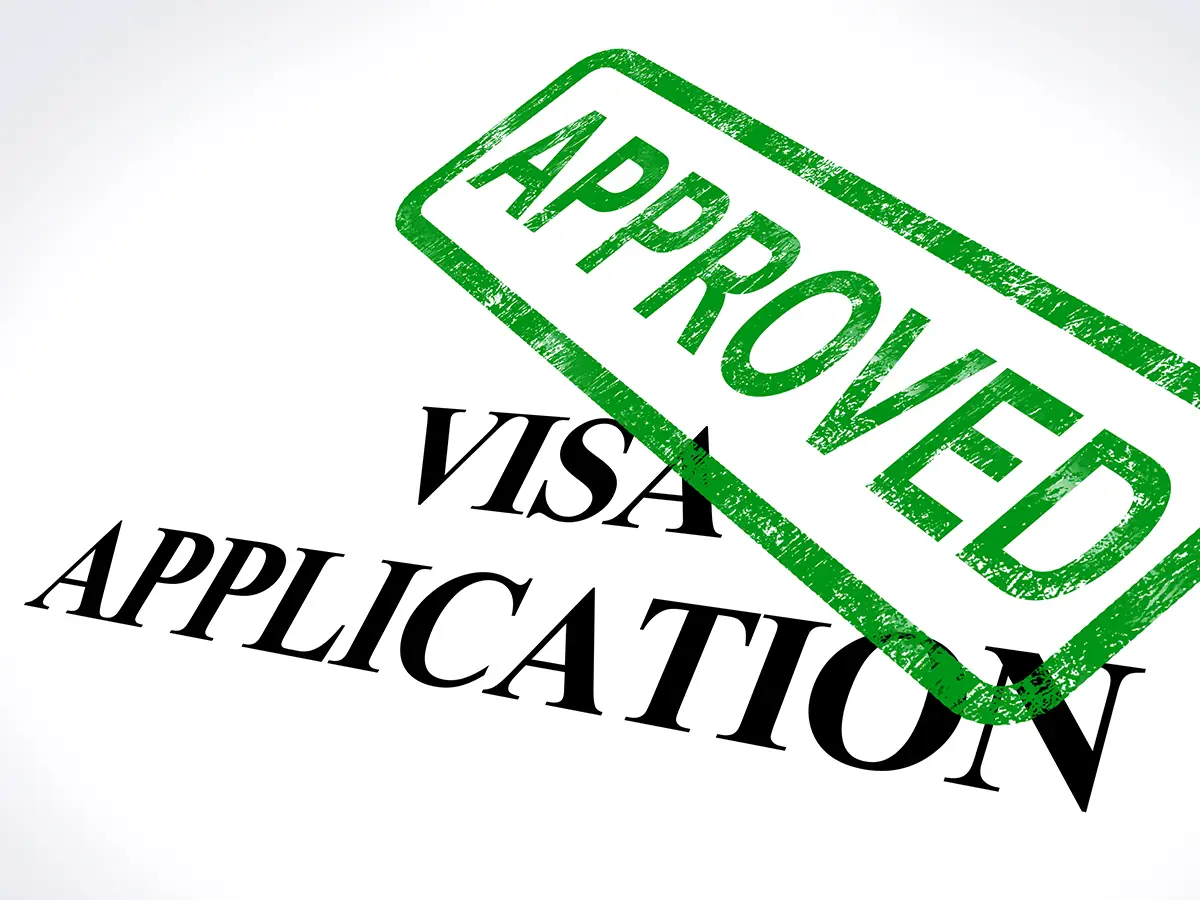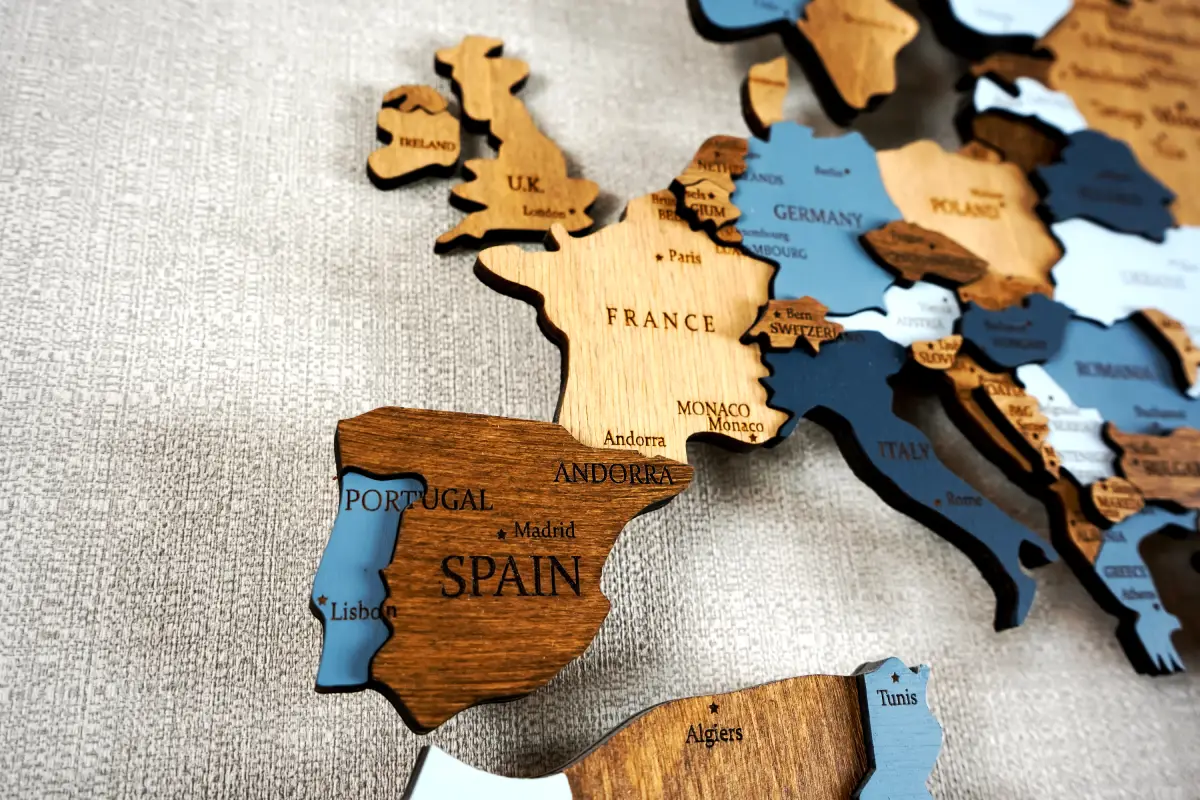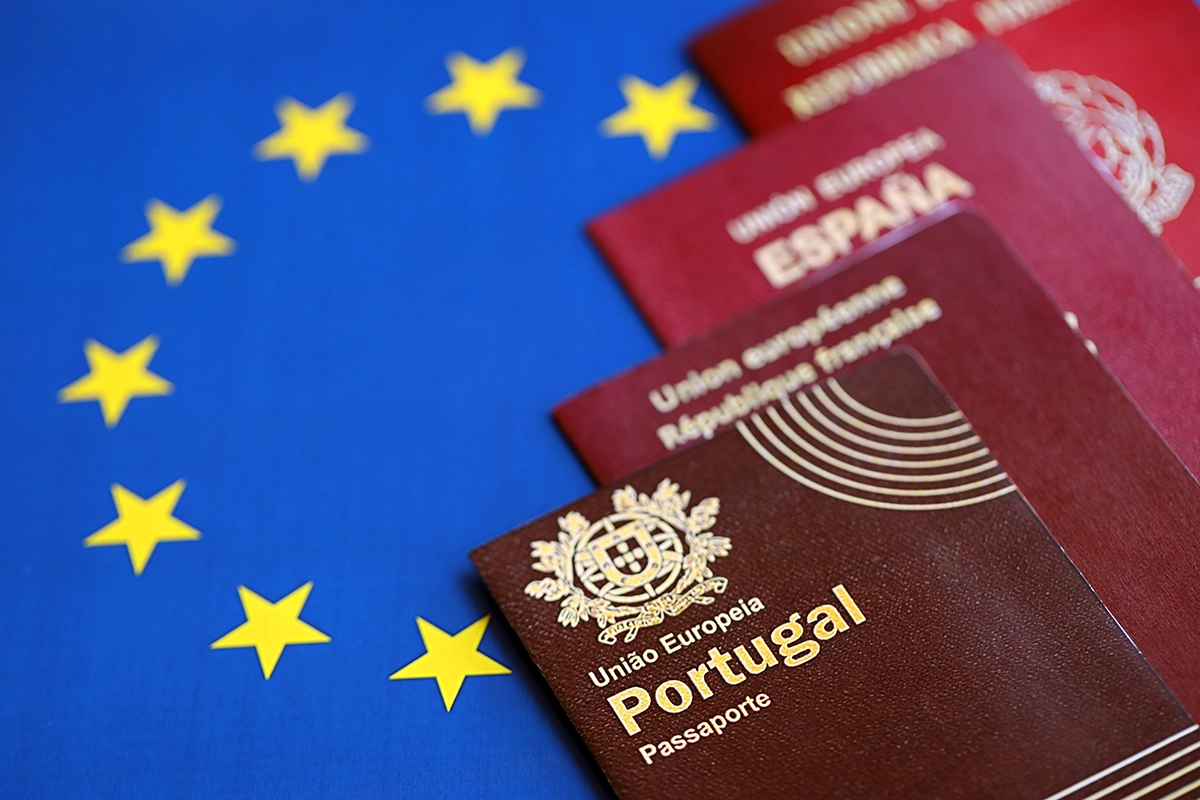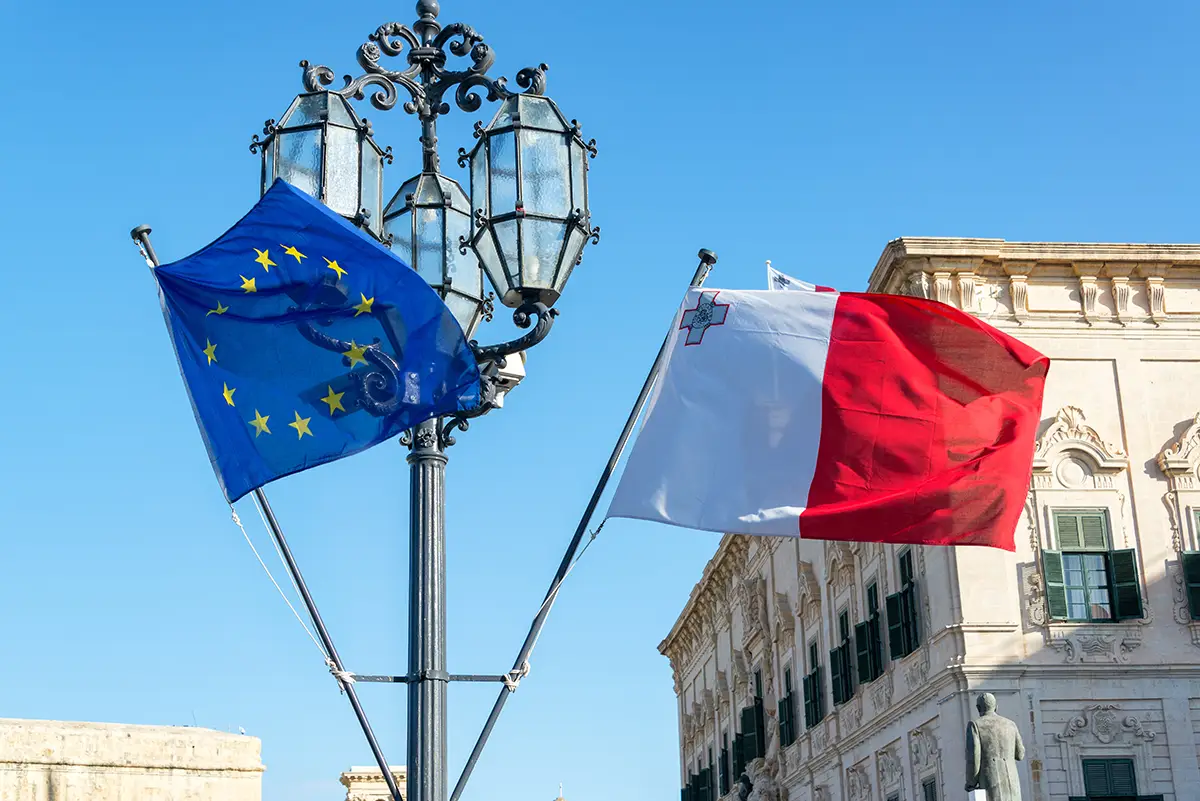Understanding the Schengen Zone: How It Benefits EU Residents
The Schengen Area originated from the Schengen Agreement, signed on June 14, 1985, in the tiny town of Schengen, Luxembourg, by five European countries: Belgium, France, West Germany, Luxembourg, and the Netherlands. The idea was pretty revolutionary at the time, as they wanted to eliminate internal border checks and allow the free movement of people and goods among member countries. The creation of the Schengen area was a big leap toward European integration, aiming to boost economic cooperation and make cultural exchange a whole lot easier between the members.
Over the following years, more countries saw the benefits and hopped on board, expanding the Schengen Area to 29 European nations today. The agreement became part of European Union law with the Amsterdam Treaty in 1997, cementing its role in European policy. The agreement made life for Europeans way easier, since it put down all strict border controls, eliminating the need to apply for visas for each country. With that, flights turned cheaper, and quick bus trips became not just possible but downright convenient.
However, for non-EU residents, the picture is a bit different. Traveling across multiple European countries involves meticulous planning of how much time you can spend at the Schengen Zone, visa applications, and sometimes, long waits at border controls. On the other hand, as an EU resident, you can move freely across most of the continent, experiencing all the rich cultures, languages, and histories that Europe has to offer. Traveling for business is made easy – no need to plan meetings abroad far in advance. All you have to do is find the best flights from a wide range of available connections and you're good to go. It is not just about convenience; it's about unlocking a world of possibilities right at your doorstep.
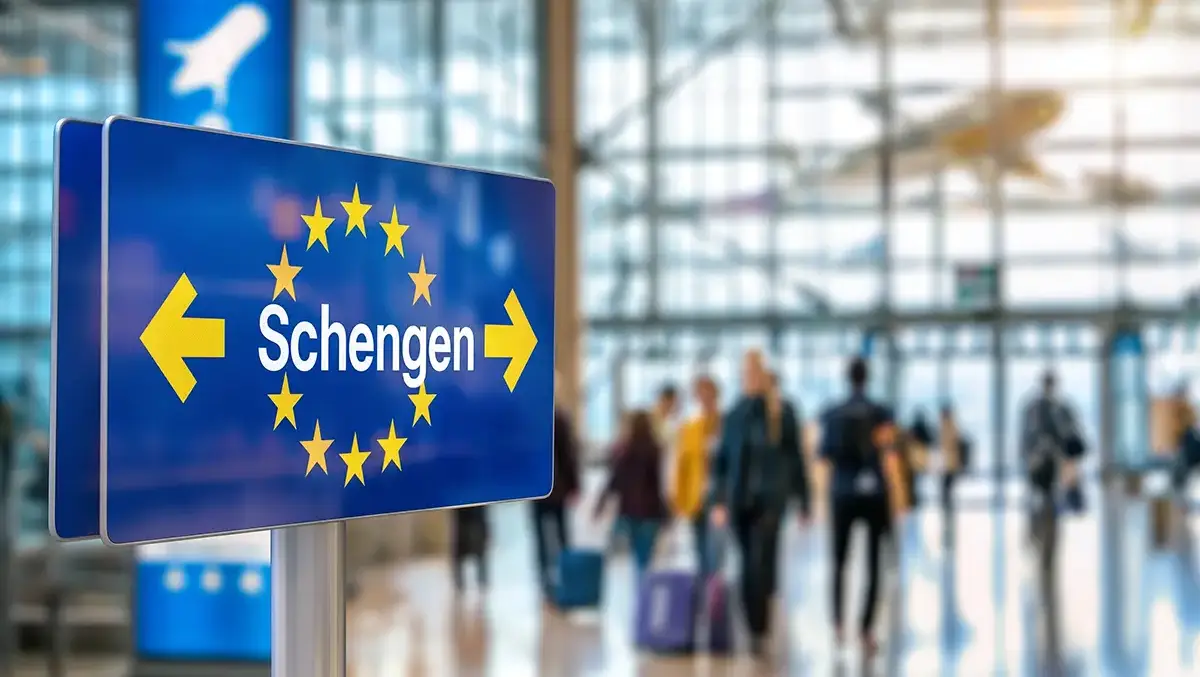
Visa Procedures: EU Residents vs. Non-EU Travelers
So, what is the big difference when it comes to visa procedures for EU residents and non-EU travelers? Let's break it down. If you are a non-EU citizen and your country does not have any bilateral agreement with the EU, you will likely need a visa to travel within the Schengen Area. In this case, obtaining a Schengen visa could involve a fair amount of paperwork; for example, you will need to provide proof of accommodation, travel insurance, financial means, and a detailed itinerary. It is a process that can take weeks, if not months, to complete. Even if your country has any deal with the EU, and you are not requested for a visa, there are still procedures you will need to follow to be accepted into the Zone.
On top of that, the European Travel Information and Authorization System (ETIAS) is set to come into effect in October 2024. This means that travelers from visa-exempt countries will need to apply for travel authorization before entering the Schengen Zone. While ETIAS aims to strengthen security, it is another layer of bureaucracy for non-EU travelers to navigate. In contrast, EU residents can skip all this hassle, having more freedom of movement. In other words, it is like having a golden ticket to explore one of the most diverse continents on Earth.
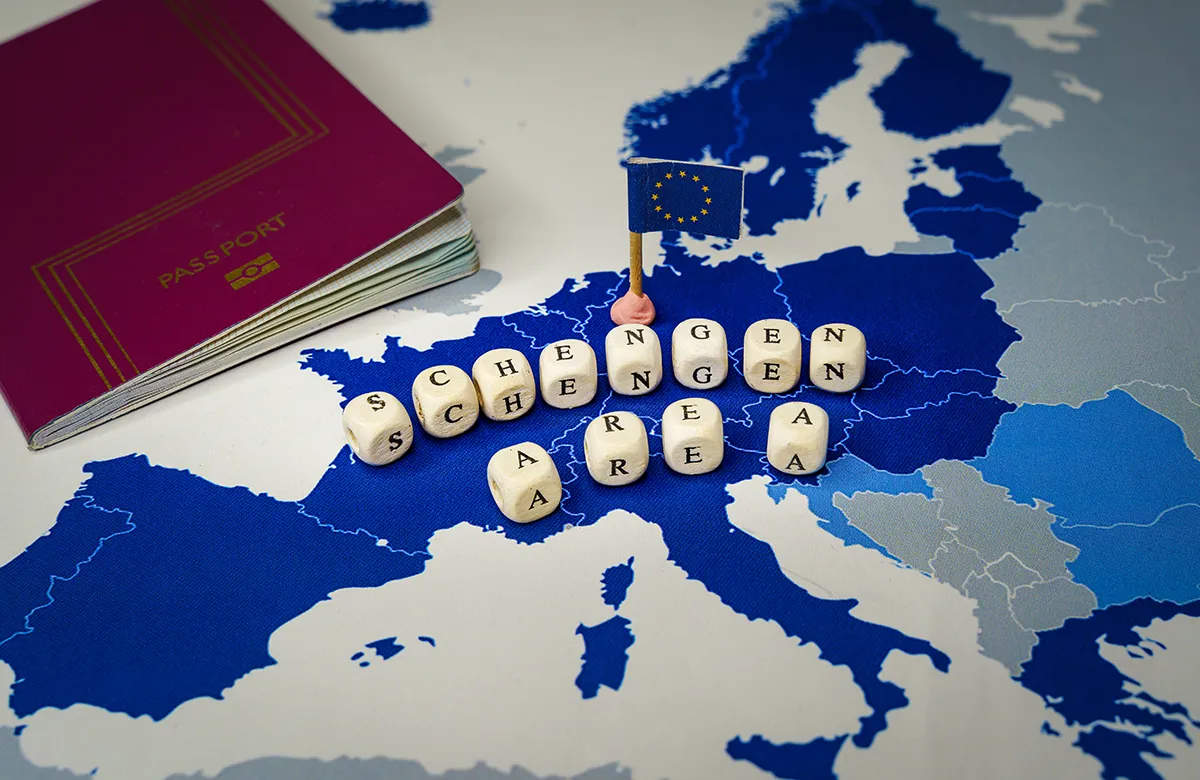
Understanding the Schengen 90/180-Day Rule and ETIAS
Think the process ends with getting your visa granted? Not quite! There are still more rules to follow. Schengen Zone has some particularities that need to be followed, even for EU residents. That is the case with the 90/180-day Rule. The policy allows Schengen visa holders to stay for up to 90 days within a 180-day period. But here is the catch: you have to be mindful of the 90/180-day rule, which can be confusing and restrictive if you are planning a longer stay or multiple trips within six months. Confused? Keep reading!
In fact, the Schengen Visa's 90/180-day rule regulates short-term stays, but here is how this works: day 1 of 180 starts when you first enter any Schengen country. For example, arriving in Athens on January 1st and staying continuously for 90 days means you must leave the Schengen Area by March 31st. Alternatively, you can make multiple trips totaling up to 90 days within that 180-day period ending on June 29th. Traveling to other Schengen countries like France, Spain, or Portugal does not reset the counter, as the entire Schengen Area is treated as one territory. After accumulating 90 days of stay, you must wait another 90 days before returning. This new period starts the day after the previous 180-day window ends. In this example, you could re-enter the Schengen Area starting September 28th.
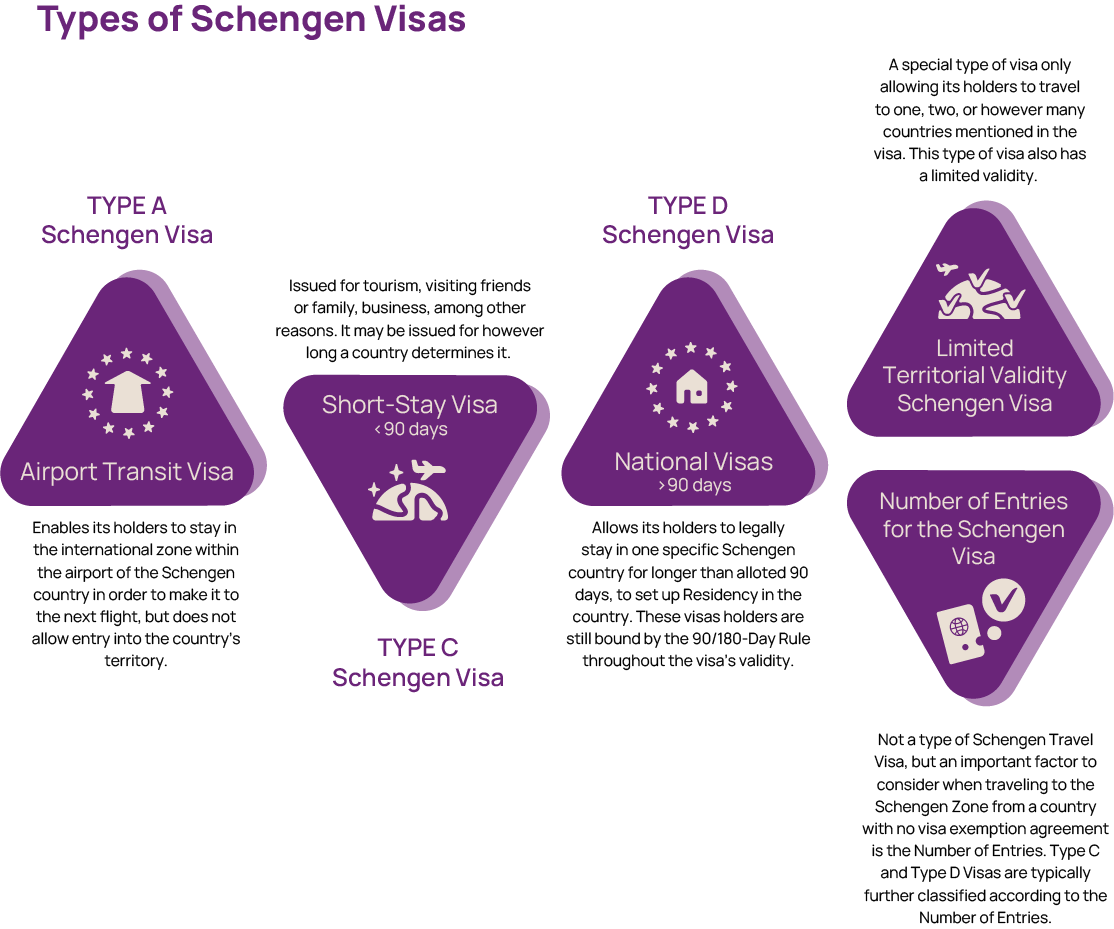
With the upcoming ETIAS, travelers from countries that currently do not require a visa will need to apply for authorization before their trip. Although this system will have a small fee, it should not be the same as the one you pay for a visa request, and it will be way faster. The ETIAS is designed to enhance security by pre-screening travelers, but it does add another step to your travel preparations. For EU residents, none of this applies, and you can simply wake up in the morning and decide to spend the day in a neighboring country without a second thought. No forms, no fees, no fuss.
Read More:
Schengen Visa Types: Which One Do You Need?
Long Schengen Visa Appointment Queues All Around the World
A New Trend on the Internet: the Flag Theory & Perpetual Traveler Explained
How to Travel Around Europe: Train, Airplane, Bus or Car?
When it comes to getting around Europe, the options are practically endless. One of the most popular and comfortable ways is by train. Europe's rail network is extensive and efficient, connecting major cities and charming small towns alike and with services like the Eurail Pass, you can explore multiple countries on a single ticket. Imagine watching the landscapes change from the rolling hills of Tuscany to the snow-capped peaks of the Swiss Alps, all from the comfort of your seat. That is possible in the Schengen Zone.

If you are on a budget or short on time, low-cost airlines like Ryanair and easyJet offer incredibly cheap flights between European cities. You can snag tickets for as little as €20 if you book in advance. It's quite common for people to travel between countries for work or to visit family and friends regularly, and they can do so by simply presenting their ID card from an EU country. Buses are another affordable option, with companies like FlixBus offering routes that cover most of the continent. And let's not forget about car rentals and ride-sharing services such as BlaBlaCar, a very typical platform in countries like Spain and Italy, which gives you the freedom to explore at your own pace. If you're someone who loves adventure, you might want to give hitchhiking a try and fully embrace the freedom of "traveling without borders”.
The Cultural Richness and Diversity of Europe
One of the most remarkable things about Europe is its cultural diversity packed into a relatively small geographic area. In just a few hours, you can move from the romantic streets of Paris to the bustling markets of Brussels, or from the historical ruins of Rome to the modern architecture of Berlin. Each country, and often each region within a country, has its distinct language, cuisine, traditions, and way of life.

In this context, weekend trips to different countries become a regular pastime rather than a once-in-a-lifetime adventure. It is very normal for a resident living in Lisbon to take a 2-hour road trip to Badajoz, Spain, just to try new cuisine and experiences. This level of exposure to diverse cultures not only enriches your personal life but can also provide valuable insights and inspiration for your professional endeavors.
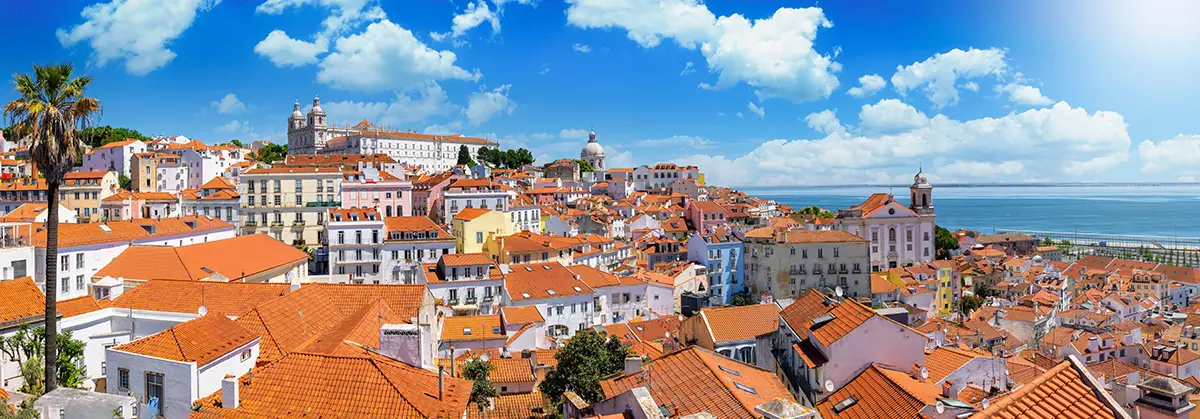
We need to remember that Europe as a continent is actually a very small territory, being even smaller when compared with countries like the United States, or Brazil. Its compact size and excellent transportation infrastructure make it a dream destination for travelers. Where else can you have breakfast in one country, lunch in another, and dinner in yet another, all on the same day? The ease of travel in Europe means you can plan spontaneous trips without worrying about logistics or exorbitant costs. Plus, with the rise of budget airlines and affordable accommodation options like Airbnb and hostels, exploring Europe does not have to break the bank.
For those coming from larger countries where domestic travel can involve long distances and high costs, Europe's accessibility is a revelation.
Coming From a Non-EU Country: Is There Any Way to Enjoy Freedom of Movement Around Europe?
So, how can you make this hassle-free travel lifestyle a reality? The key is obtaining EU residency. Residency by Investment (RBI) programs in countries like Portugal, Greece, Malta, and Hungary offer pathways to residency through a minimum investment for some preset time. Known as RBI programs, they are designed to attract foreign investors by providing benefits like residency permits, tax incentives, and in some cases, a path to citizenship, leading to enjoy freedom of travelling in Europe.
Once you are an EU resident, the doors to Europe swing wide open. You can live in one country and easily travel to others for work, leisure, or education. Your family can enjoy high-quality healthcare and education systems, and you can explore business opportunities across multiple markets. In essence, EU residency does not just grant you the right to stay in one country; it gives you access to an entire continent.

Investment Visa: Your Gateway to a Bright Future in Europe
At Investment Visa, we are committed to helping you navigate the complexities of obtaining EU residency. Our personalized approach ensures that we understand your unique needs and guide you toward the best investment opportunities. Whether you are interested in Portugal's Golden Visa program, Greece's residency by investment through real estate, or Malta's Citizenship for Exceptional Services Regulations, we have got you covered.
These programs typically involve investing in real estate, government bonds, or creating jobs through business ventures. The investment amounts vary by country, but the benefits are substantial, not only giving you, in some cases, a solid return on your investment, but the chance of securing a future for yourself and your family in a stable, prosperous environment such as the European Union. Contact Investment Visa today and take the first step towards a life of freedom and adventure.











